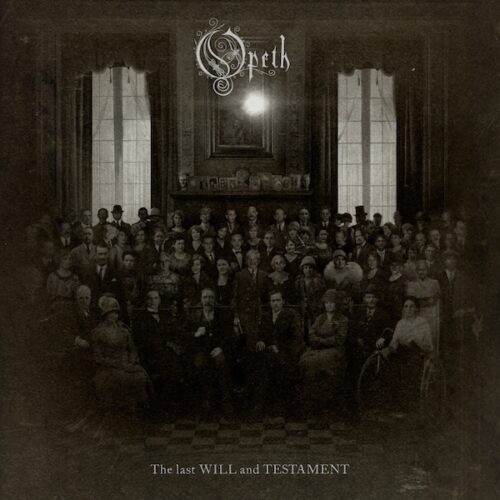Even more than a month of Sundays or the new Necrophagist album, the day when Opeth would start making death metal again wasn’t even really hoped for. But after four pastiche albums of the progressive rock of yesteryear, the Swedish monument took everyone by surprise with an odyssey worthy of Blackwater Park or Watershed. As you may have gathered, there are death grunts here, and not just a few!
A new Opeth album is always an event in the metal world. Even if you’re not a fan, it doesn’t go unnoticed, given the band’s inordinate influence on more cerebral rock and metal music. That said, Mikael Akerfeldt and his band had made the very alienating choice, at least for part of the audience, to “mature” out of death metal by depriving us of one of the scene’s most recognizable growls. No matter, because on The Last Will and Testament, the band has completely returned to its roots, and it’s in this form that Opeth shines. If anything, their retro drift has merely paved the way for this grand return.
At over fifty minutes long, this new opus is once again a grand narrative – an almost cinematic affair – of highly diversified influences, all united by the familiar heaviness of rock instrumentation. Between and through the heavy passages, there’s always a variety of synthesizers, samples, additional percussion, organ and Mellotron passages. These elements allow Opeth to orchestrate their ideas and transcend, at their best, the constraints of a small amplified ensemble. But hidden in this epic, there are many catchy passages that make the songs memorable and head-nodding.
The fact remains that you really feel at the heart of a story, whether by the album’s division into chapters or by listening to the instrumental segments that drive the narrative forward. The vocal arrangements are also at their most spectacular, sometimes accentuating the clear voices with eloquent harmonies, and sometimes the extreme vocals with powerful, oppressive roars. The reinsertion of distorted vocals has really restored ambition to this all-important aspect of the band, giving Akerfeldt the aura of an omniscient deity capable of moving continents. It goes without saying that the instrumental performance is impeccable all across the board, but let’s highlight the excellent contribution of new drummer Waltteri Väyrynen, who adds welcome rhythmic subtleties to the pieces.
We can speculate on the deeper meaning of an album that bears the last will and testament in its name, but for the time being, this 14th opus exceeds all expectations of a nearly forty-year-old Opeth.
























